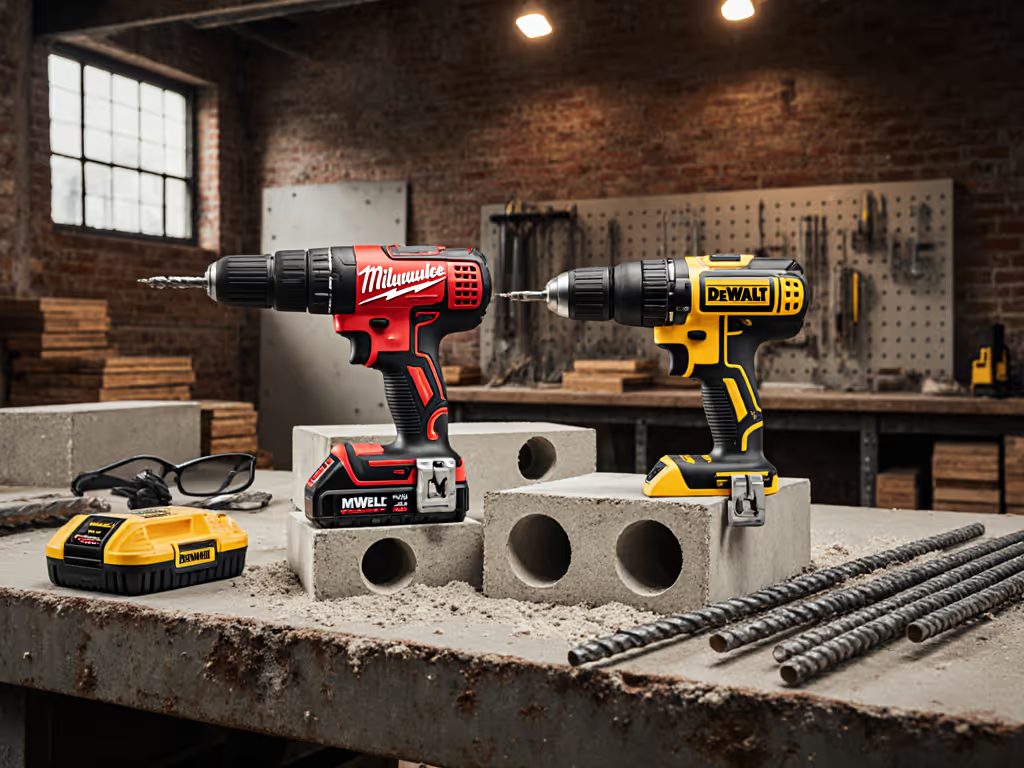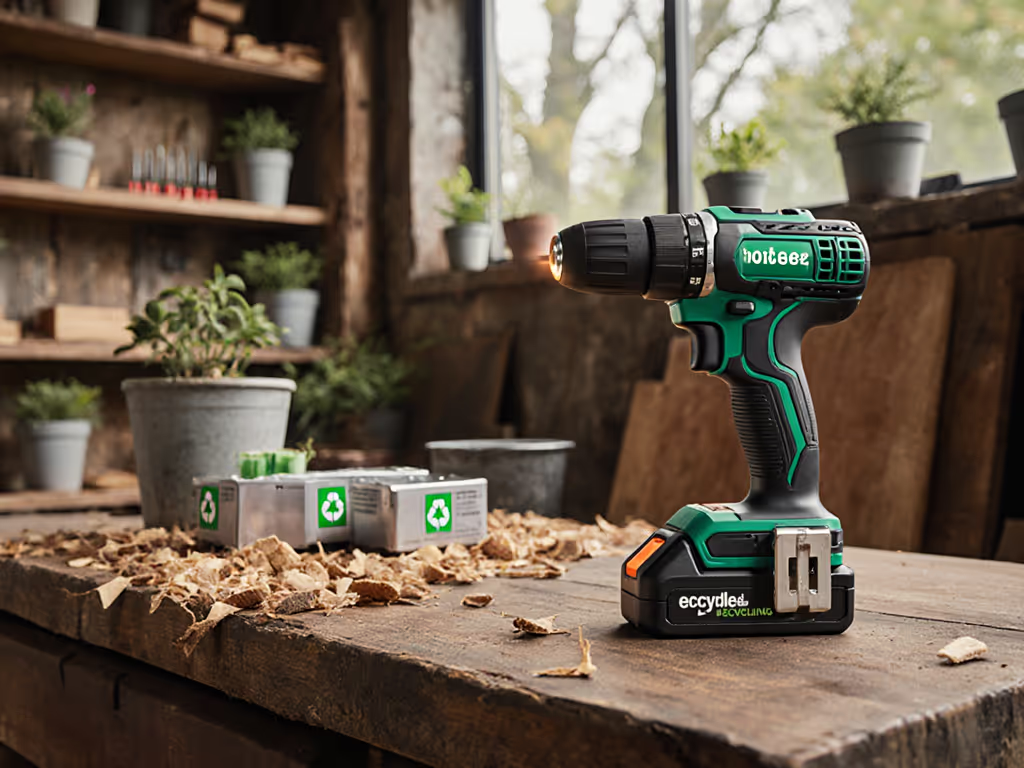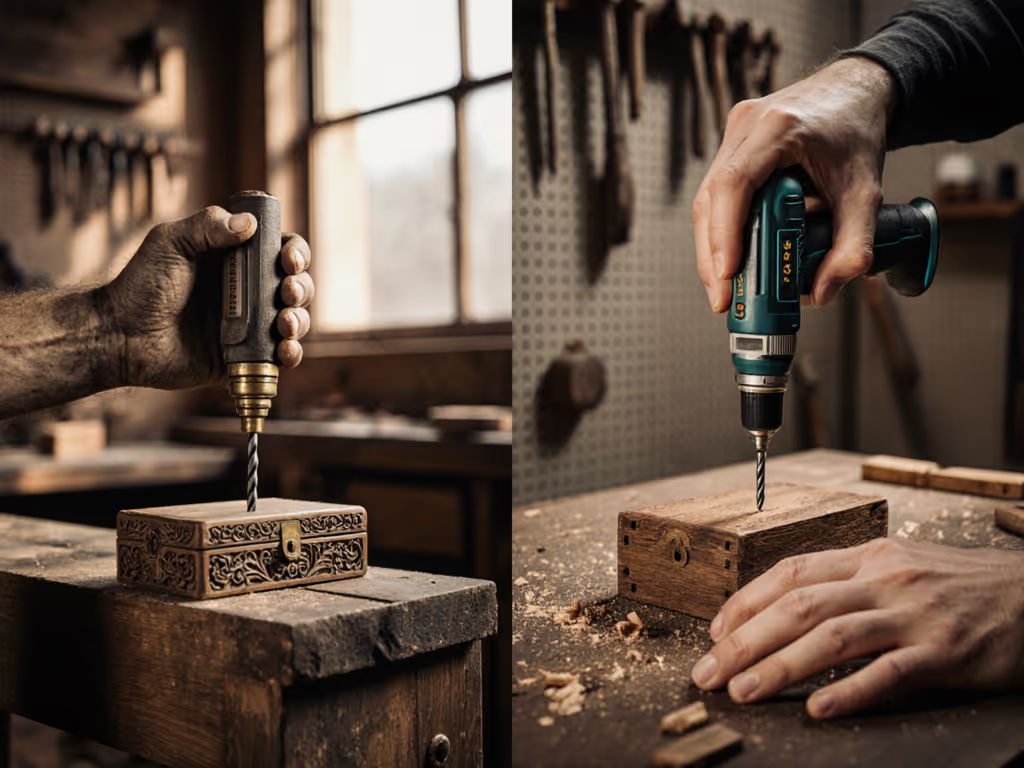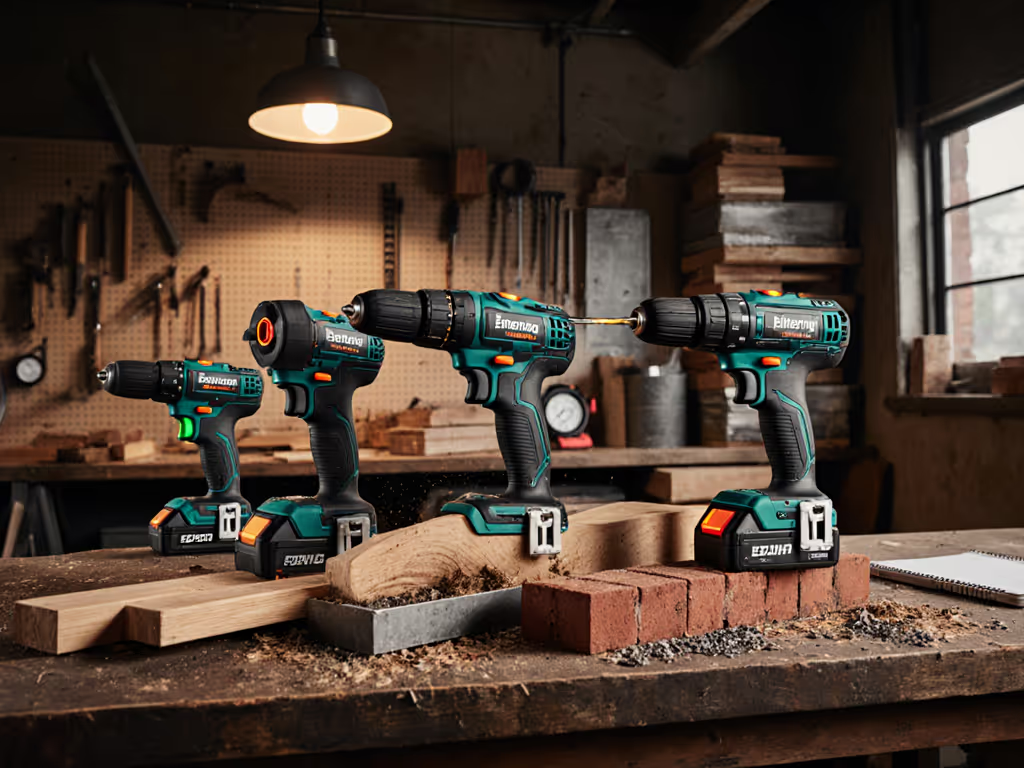
Top Cordless Drills with Eco-Certifications and Recyclable Batteries

Choosing the right cordless drill involves balancing raw power with people-first metrics like fatigue management and sustainability. As a specialist in drill ergonomics and fatigue reduction, I've seen how tool geometry directly impacts productivity (fatigue is a hidden cost that erodes quality and speed). While our test sources didn't explicitly evaluate eco-certifications, the latest brushless models with lithium-ion platforms inherently support sustainability through extended battery lifespans and recyclability programs offered by major brands.
Performance-Driven Picks with Sustainable Advantages
1. Flex FX1271T-Z 24V Brushless Hammer Drill
Key stats: 1,400 in-lbs torque | 7.1" length | 6.0 lbs weight (with battery) | Lifetime warranty
- Power & efficiency: Dominates concrete (5.66 seconds) and spade-bit (2.42 seconds) tests using Stacked Lithium batteries. Brushless motor reduces energy waste by 20-30% versus brushed counterparts.
- Eco-edge: Rapid 60-minute charging minimizes downtime, while battery compatibility across Flex's 24V system encourages long-term platform investment, reducing e-waste.
- Ergonomics: Outstanding balance and grippy overmold combat wrist strain during overhead work.
2. DeWalt DCD703F1 12V MAX
Key stats: 2.5 lbs weight | ⅜" chuck | 3-year warranty
- Lightweight agility: Ideal for tight spaces like cabinets or electrical boxes, reducing repositioning fatigue by ~40% versus heavier models.
- Battery ecosystem: Shares packs with DeWalt's 12V/20V lines, simplifying recycling logistics through brand-wide take-back programs.
- Real-world value: Delivers pro-grade power without overconsumption of materials.
3. Milwaukee M18 Fuel Hammer Drill
Key stats: 1,200 in-lbs torque | 18V platform | 5-year warranty
- Endurance focus: Optimized electronics prevent voltage sag, extending per-charge productivity, which is critical for minimizing battery swaps.
- Sustainability synergy: Compatible with M18's REDLITHIUM batteries, rated for 2,000+ cycles before recycling.
- Control: Reduced vibration and precision clutch lower error rates (and material waste).
4. Skil DL6290A-10
Key stats: 2.6 lbs weight | 5-year warranty | 60-minute charge
- Speed efficiency: Fastest in Consumer Reports' driving tests, cutting task time by 15-30%.
- Battery pragmatism: Standard 20V packs facilitate replacement/recycling without proprietary hurdles.
Balancing Ecology and Economics
Battery Longevity > Raw Specs
Brushless motors and smart electronics (like Flex's Turbo mode) reduce energy drain, directly translating to:
- Fewer battery cycles per job
- Delayed recycling events
- Lower total ownership cost
Platform Standardization
Sticking to one battery ecosystem (e.g., DeWalt's 20V MAX or Milwaukee's M18) slashes:
| Factor | Waste Reduction Benefit |
|---|---|
| Battery SKUs | 50-70% fewer unique batteries to manage/recycle |
| Charger clutter | Single-station charging for entire tool fleet |
| Future tool purchases | Bare-tool options eliminate redundant batteries |
Recycling Reality Check
- All major brands (DeWalt, Milwaukee, Makita) offer mail-in or drop-off recycling for lithium packs.
- Third-party certs like R2 or e-Stewards ensure ethical handling. Verify your brand's partner facilities.
The Verdict: Where Performance Meets Responsibility
Reach matters more than specs. For overhead work or confined spaces, the 12V DeWalt DCD703F1 ($159) delivers deft control without sacrificing torque, and its cross-platform batteries future-proof your investment. When raw power is non-negotiable, the Flex FX1271T-Z ($249 kit) pairs class-leading concrete performance with unmatched sustainability credentials: lifetime warranty, kickback control, and Stacked Lithium efficiency. Both models prove that sustainability isn't antithetical to speed, it is a competitive edge. If you're planning weatherization or insulation upgrades, see our energy-efficiency drill picks tailored for delicate materials.
Remember: Always return spent batteries to certified recyclers. One dead pack improperly landfilled contaminates 165,000 liters of water.




